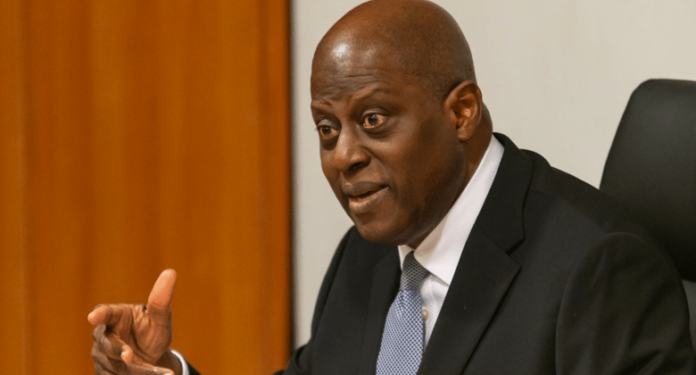The Central Bank of Nigeria (CBN) is cracking down on commercial banks that are failing to provide cash to customers. Governor Olayemi Cardoso announced that banks unable to provide cash at ATMs and branches will face penalties starting December 1, 2024.
Cardoso revealed this at the annual Bankers’ Dinner in Lagos, emphasizing the importance of cash flow. “We are conducting spot checks across deposit money banks, DMBs, and will impose penalties on institutions effective December 1,” he said.
The governor urged Nigerians to report cash withdrawal challenges directly to the CBN through designated channels. He also assured that guidelines would be widely shared to raise public awareness.
This move comes amid a persistent cash scarcity that has gripped Nigeria since 2023. The shortage was triggered by a controversial naira redesign and a central bank policy limiting weekly over-the-counter withdrawals to ₦500,000.
As ATMs and banking halls struggled to meet cash demands, many Nigerians turned to Point-of-Sale (POS) agents. These agents source cash from diverse places, such as supermarkets and fuel stations. However, their growing influence has sparked calls for tighter regulation.
In May 2024, the government ordered 1.9 million POS operators to register with the Corporate Affairs Commission (CAC).
Despite efforts to promote digital transactions, Cardoso acknowledged the need for balance. “The CBN will continue to maintain a robust cash buffer to meet the country’s needs,” he stated. He assured Nigerians of adequate cash supply during high-demand periods, such as the festive season.
While frustrating, the cash crisis has driven more Nigerians to adopt digital payments. Companies like Opay and Palmpay have benefited significantly, but cash remains essential for many. Cardoso stressed that the central bank is committed to fostering trust and stability in the financial system.
“We also urge full regulatory compliance by all stakeholders, including mobile money operators and agents to promote digital transaction channels and improve service delivery,” he said. Banks and institutions found engaging in malpractice or sabotage will face severe penalties.
As the December deadline looms, Nigerians are hopeful that these measures will ease the cash scarcity and improve access.





















































